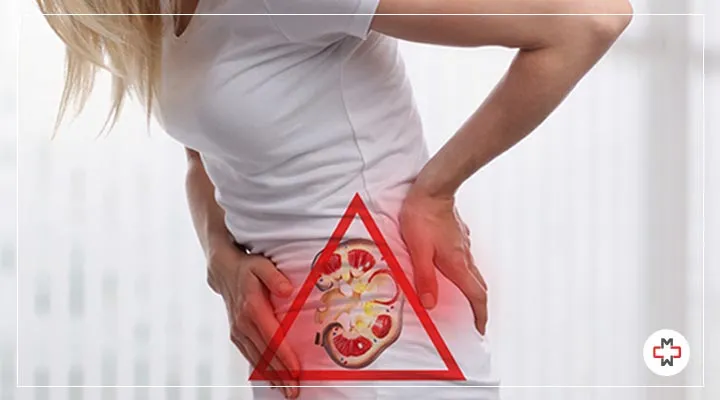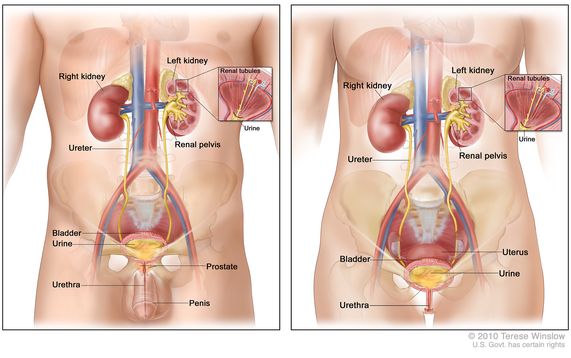Exactly how to Differentiate In Between Kidney Stones vs UTI: Trick Aspects and Diagnostic Tips
Exactly how to Differentiate In Between Kidney Stones vs UTI: Trick Aspects and Diagnostic Tips
Blog Article
Exploring the Manifestations and Causes of Kidney Stones in Contrast to Urinary System System Infections: An In-depth Guide
The exploration of kidney stones and urinary system infections (UTIs) discloses an intricate interaction of symptoms and underlying reasons that call for careful evaluation. What are the essential differences in their signs and symptoms, and how might these notify treatment approaches?
Review of Kidney Stones
Kidney rocks, additionally known as renal calculi, form when specific compounds in the pee crystallize and aggregate, causing the growth of hard down payments within the kidneys. These stones can vary in size, varying from a grain of sand to a golf ball, and can be made up of numerous products, the most typical being calcium oxalate, uric acid, struvite, and cystine. The formation of kidney rocks is affected by numerous elements, including nutritional routines, fluid intake, and hereditary tendency.
Symptoms of kidney stones may consist of serious pain in the back or side, blood in the pee, nausea or vomiting, and constant urination, particularly as the rock moves with the urinary system system. Diagnosis generally involves imaging research studies such as ultrasound or CT scans, together with urinalysis to identify the stone's composition.
Treatment choices vary based upon the size and type of stone, in addition to the seriousness of signs (Kidney Stones vs UTI). Little rocks might pass naturally with enhanced liquid intake, while bigger rocks might call for medical treatments such as lithotripsy or medical removal. Comprehending the pathophysiology and danger aspects linked with kidney stones is vital for efficient avoidance and administration
Summary of Urinary System System Infections
Urinary system infections (UTIs) are typical bacterial infections that influence any part of the urinary system, consisting of the kidneys, ureters, bladder, and urethra. They predominantly happen when microorganisms, typically from the gastrointestinal tract, go into the urinary system, leading to inflammation and infection.
The frequency of UTIs is significantly higher in females than men, mainly because of physiological differences, such as a shorter urethra. Danger elements include sex-related task, certain contraceptive approaches, urinary retention, and dehydration. The diagnosis of UTIs is usually confirmed through pee examinations, which might expose the existence of germs, white blood cells, or red cell.

Signs And Symptoms of Kidney Stones
The discomfort related to kidney stones can materialize in numerous means, frequently leading people to seek medical attention. One of the most usual signs and symptoms is severe pain, normally local in the reduced back or side, which may emit to the abdominal area or groin. This discomfort, frequently described as sharp or cramping, can happen instantly and may change in intensity.
Furthermore, individuals may experience hematuria, or blood in the urine, which can range from tiny total up to visible discoloration. This signs and symptom might be gone along with by modifications in urinary practices, such as increased regularity or seriousness, in addition to discomfort during peeing. Queasiness and vomiting are likewise prevalent, frequently resulting from the body's response to extreme pain.
Sometimes, people might experience high temperature and cools, especially if a secondary infection creates as a result of the obstruction triggered by the rocks. Overall, the mix of serious pain, hematuria, transformed urinary patterns, and stomach signs and symptoms can give significant insight into the presence of kidney stones, requiring punctual medical evaluation and treatment. Understanding these signs and symptoms is crucial for prompt diagnosis and efficient administration of the problem.
Signs And Symptoms of Urinary System System Infections
Infections within the urinary tract typically offer a series of distinct signs that can substantially impact day-to-day why not find out more life. The most typical signs and symptoms consist of a relentless impulse to urinate, usually accompanied by a burning experience during urination, known as dysuria. People may additionally experience boosted regularity of peeing, producing tiny quantities of urine each time.
Various other notable signs and symptoms include cloudy or smelly urine, which might suggest the existence of germs or pus. Sometimes, urine may show up red or pink due to the existence of blood, a condition known as hematuria. check my site Furthermore, people may experience pelvic pain or stress, which can better aggravate the feeling of seriousness.
Systemic signs might also manifest, such as fever, cools, and tiredness, especially if the infection has risen to the kidneys. It is important to acknowledge these symptoms early, as unattended urinary system system infections can lead to more extreme complications. Kidney Stones vs UTI. Trigger clinical interest is encouraged when these signs and symptoms are observed, enabling ideal diagnostic assessment and treatment to minimize pain and stop further health problems
Sources Of Each Condition
Frequently, kidney stones and urinary system system infections develop from distinctive yet often overlapping reasons that can influence individuals differently. Kidney rocks normally develop as a result of metabolic factors, nutritional selections, and genetic proneness. Boosted levels of calcium, oxalate, or uric acid in the urine can bring about rock development. Dehydration, not enough liquid intake, and high-sodium diet plans can intensify these problems, advertising condensation within the urinary system.

Comprehending these unique causes is crucial for prevention and therapy. Kidney Stones vs UTI. While lifestyle alterations may minimize the risk of kidney stones, proper hygiene and punctual treatment of urinary system infections are essential for lowering their reappearance and associated problems
Conclusion
In summary, kidney stones and urinary system infections existing distinct signs and underlying reasons. Kidney stones are identified by severe discomfort and metabolic aspects, while urinary system system infections mainly include bacterial infections bring about urinary system seriousness and pain. Although both conditions can result in hematuria, their formation mechanisms vary substantially. Understanding these differences is essential for efficient medical diagnosis and treatment, ultimately improving person outcomes for those influenced by either condition.
The exploration of kidney stones and urinary tract infections (UTIs) reveals an intricate interaction of signs and symptoms and underlying reasons that require cautious examination.Urinary system infections (UTIs) are usual bacterial infections that influence any component of the urinary system, consisting of the kidneys, ureters, bladder, and urethra.Often, kidney rocks and urinary system infections develop from distinct yet sometimes overlapping causes that can affect individuals in a different way.In recap, kidney rocks and urinary system system infections present unique signs and underlying causes. Kidney stones are identified by severe pain and metabolic aspects, while urinary system tract infections primarily include microbial infections leading to urinary urgency and discomfort.
Report this page